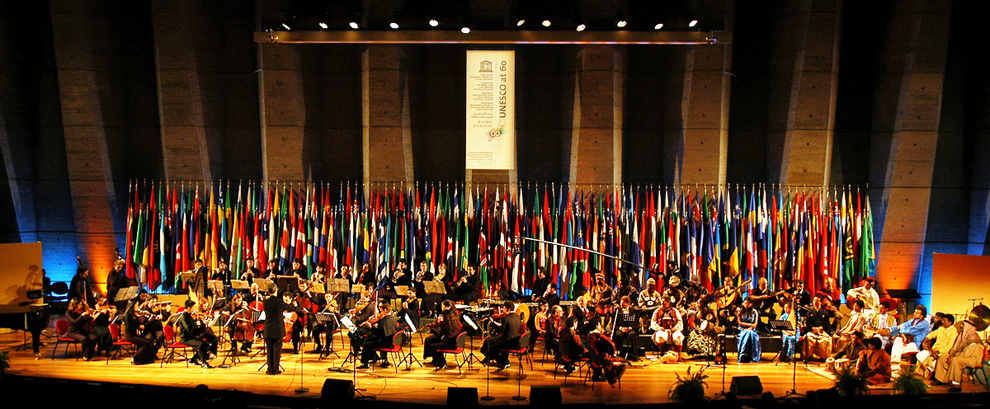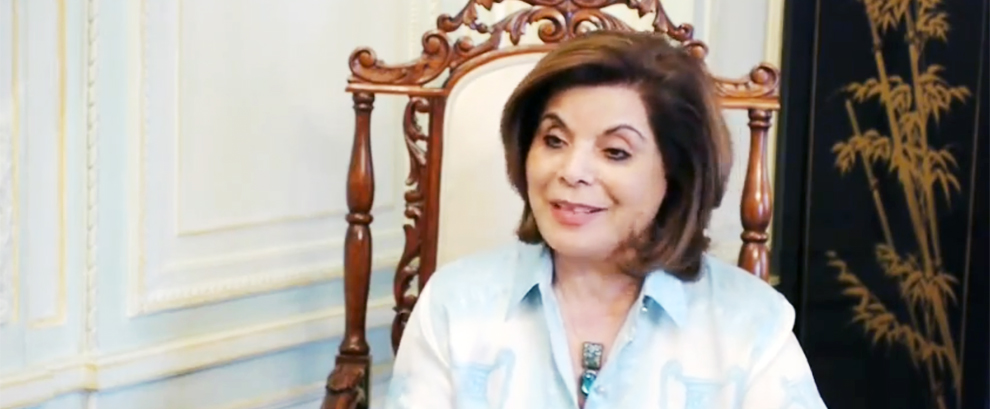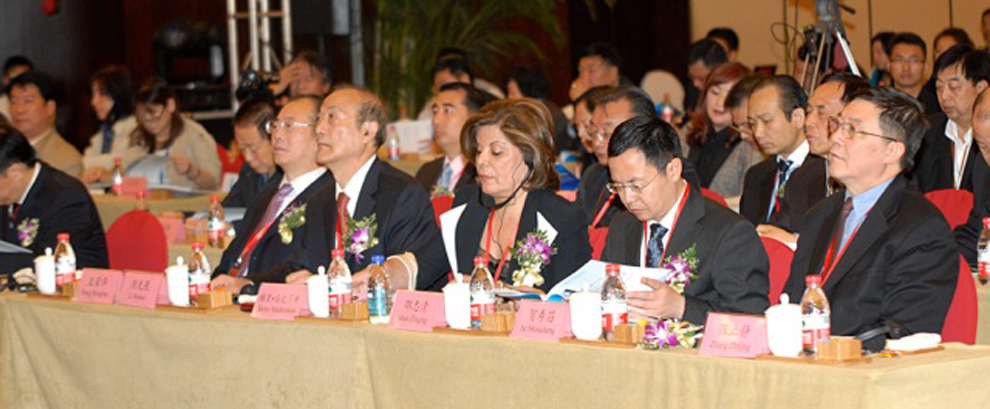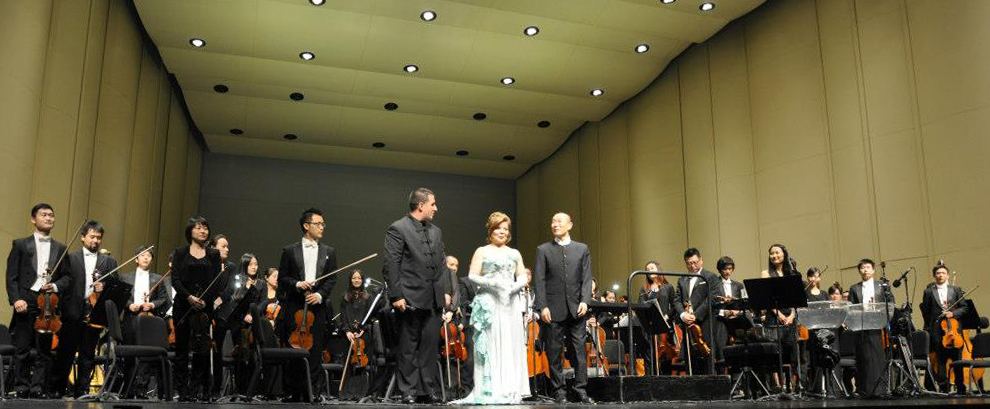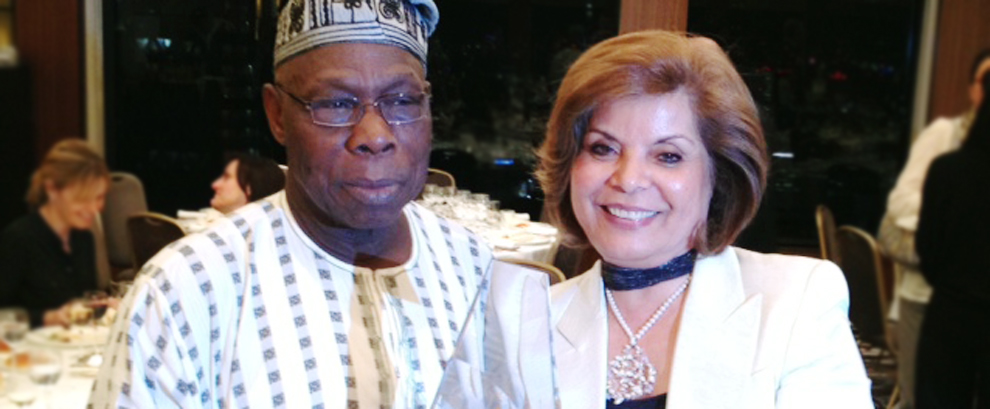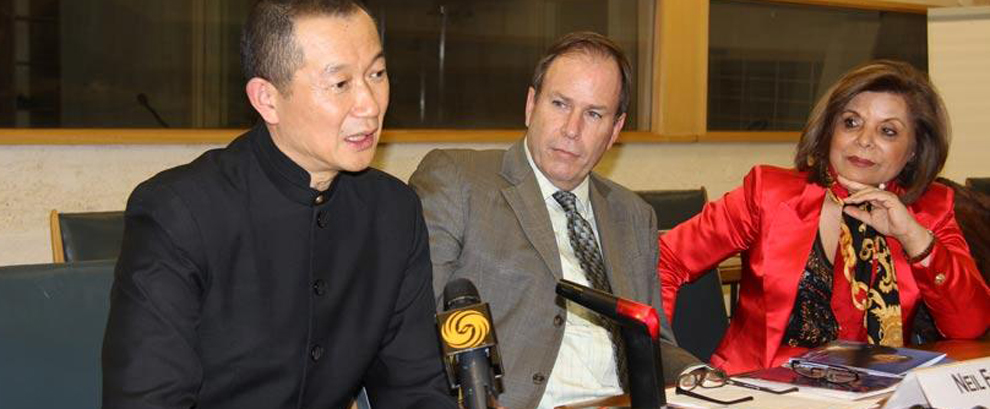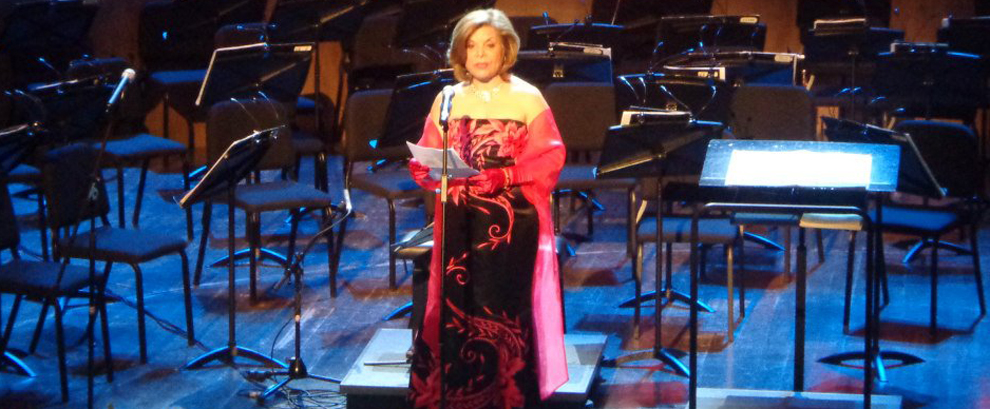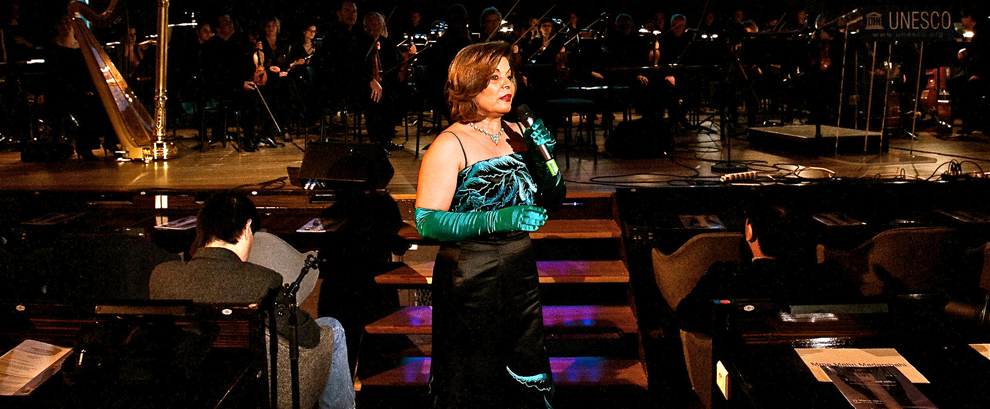MaximsNews Network
By Mehri Madarshahi
Fully prepared to hosting the highly anticipated Olympic Games on 8 August 2008, the Chinese – miscalculating their universal popularity contest – are caught unprepared in an unprecedented storm of unwelcome scrutiny on issues which hitherto were considered a matter of their internal sovereignty.
The problems started when the earlier promise of “green” games was unlikely to materialize. The international outcry, on environmental problems, intensified when some participating countries expressed uneasiness with the city’s poor air quality and the Ethiopian top runner Haile Gebreselassie decided to skip the Olympic marathon out of concern for his health.
In the process, the International Olympic Committee cautioned that some endurance Olympic events might have to be postponed if the air quality would remain poor. All this was compounded by concern about China ’s role as one of the largest emitter of greenhouse gases and contributor to ozone depletion, marine and freshwater pollution and the illegal timber trade.
But the problems did not stop here. With the high profile departure of Stephen Spielberg – artistic advisor to the Beijing Olympics – over Chinese policy in Darfur, media focus was this time directed to Chinese foreign policy and in particular of its economic interests in Africa.
This was a scenario dreaded by the Government of China which it sought to avoid at all cost ever since it was selected as host of the 2008 Olympic Games. In a statement issued a few days later, the Chinese Government underlined its solidarity with the international community in resolving the political crisis in theSudan and asked the Government of Sudan to do more to end the bloodshed.
Yet other concerns over issues such as security, travel or accommodations and alike gave rise to impassioned debates in many countries. A critical, if not major boiling point, however, proved to be a gross underestimation of a problem that has been brewing for over 50 years: Tibet . The outbreak of violent clashes inLhasa between Tibetans and the Chinese government forces put the issue abruptly on the forefront of the Olympic agenda.
Although, the Olympic planners somehow anticipated the Tibet issue, though in a rather casual manner, the intensity and apparent degree of orchestration of the ensuing protests in many countries, especially in the West, in favor of Tibetan freedom and support for the Dalai Lama were not.
The Chinese authorities, therefore, were seemingly caught unprepared, if not utterly surprised by the incidents during the Olympic flame ceremony in ancientOlympia , Greece . Members of “Reporters sans Frontieres” and of the Tibetan resistance movement together were able to intrude the lighting ceremony in full limelight of the international media and their cameras, displaying a modified version of the Olympic flag with five handcuffs having replaced the Olympic rings.
Ongoing clashes between Tibetans and Chinese government forces then commanded further headlines – and expressions of concern – of the international press. Nancy Pelosi (the Speaker of the US House of Representatives) met with the Dalai Lama at his exile in India and stated that events in Tibet were “a challenge to the conscience of the world“. As the Olympic torch began its 80000 km tour, demonstrators mobilized and gathered steam especially in Europe and the United States .
In London thousands of protesters waved Tibetan flags and shouted “Shame onChina “. The torch run was coming under attack and disrupted, forcing the decision to load it on a boat and rush it away from the reach of violent demonstrators.
In Paris , several hundred demonstrators waved “Free Tibet” banners and in view of a huge banner calling for human rights unfurled at Paris City Hall , the ceremony there was cancelled by the Chinese organizers. Under physical attack by demonstrators, even equipped with a fire extinguisher, the torch was extinguished four times. The torch and torchbearers were bundled into a police bus and whisked away from the demonstrators, even canceling the last leg of the run. On the whole, the French riot police seemed to show more latitude to pro-Chinese than anti-Chinese demonstrators.
The journey of the Olympic flame to San Francisco , as the only American city, took place on 9 April. The Tibetan Youth Congress, and Tibetan Woman Association, National Democratic Party of Tibet and some other highly organized groups had planned demonstrations along the route of the torch. The assumption, if not hope was that these demonstrations unlike those in Paris and London would be rather peaceful.
This was seen as partly due to the fact that the Tibetan population in California was significantly outnumbered by the Chinese by a factor of four to one and partly because of American economic and business interests. Yet, the event is turning out to come under similar challenge as in Europe , and again routes were changed at the last moment to minimize the potential disruption and embarrassment.
After San Francisco , the torch is scheduled to travel to Buenos Aires , Argentina, and then to a dozen other countries in Asia, before entering Mainland China .
In a word, the Olympic torch experience had turned into a public relations disaster, if not nightmare. Instead of highlighting the joy and harmony of the upcoming Olympics and the Olympic peace, the torch-relay became a rallying cry for grievances against the Chinese government with respect to Tibet and human rights.
At the political level, the international response to Tibetan protests has been rather mixed. Calls for a boycott of the Olympics itself did not gather steam. Instead, the idea of boycotting or, more diplomatically, non-attendance at the opening ceremony gathered steam and won the support of politicians including President Sarkozy, Chancellor Merkel and European Parliament President Hans-Gert Pöttering.
Speaking ahead of a European Parliament debate this week on the crisis, Pöttering told Germany ‘s Bild am Sonntag newspaper that “boycott measures” could be justified if the Chinese failed to negotiate a “compromise” with the Tibetan protest leaders. EU Foreign Ministers at a recent meeting in Slovenia however could not – yet – agree on a common stance. The Australian PM while supporting the holding of the Olympic Games in China , will personally not attend.
The President of the International Olympic Committee, Jacques Rogge, defended the decision to hold the Games in China , saying there was “no momentum” for a boycott…and the major political leaders don’t want a boycott.” British Prime Minister Gordon Brown shook hand with a torch-bearer in front of No 10 Downing Street and excluded the possibility of an Olympic boycott, maybe also mindful of the potential for retaliation by the Chinese in 2012, when London will host the Games.
French President Sarkozy was vocal in his objections to Beijing ’s human rights policies and declared, “All options are on the table”. Later on he had to deny the statement of his Minister of State responsible for human rights, Rama Yade that “President Nicolas Sarkozy would boycott the Games opening ceremony unlessChina starts talking with the Tibetan spiritual leader, the Dalai Lama, and releases political prisoners”. She had also accused China of “assimilation and colonization” in Tibet and of “marginalizing” the population.
In spite of Pelosi’s statement, the US Government has confirmed that President Bush would attend the opening ceremonies in Beijing , while encouraging dialogue with the Dalai Lama. Attempts to link the unrest in Tibet to the Olympics is likely to enrage the Chinese government, which had hoped the games would be a showcase for the country’s economic progress rather than a lightning rod for criticisms of its political system.
These developments and debates run counter to the original intents of the founder of the modern Olympics, Pierre de Coubertin. Olympic games per se did little during the 20th century to bring about peace to the world. In fact, during WWI and WWII three Olympiads were not held. The 1972 Summer Games in Munichwere blighted by terrorism. A bombing occurred 1996 in Atlanta ’s Centennial Olympic Park with several casualties.
A quick glance at the history of boycotts of the Games since WWII also shows how the Games were instrumentalised for political objectives and purposes: the 1956 Melbourne Olympics were boycotted by Spain, Netherlands and Switzerland in protest against the Soviet Union and its crushing of the Hungarian uprising; the Suez crisis in late 60’s led to the further boycott by Lebanon, Cambodia, Iraq and Egypt.
The 1976 Montreal Olympics were boycotted by a large number of African countries for refusal by the IOC to ban South Africa , Rhodesia and New Zealandfrom the games. Again, in Montreal the Chinese objected to the participation ofTaiwan . Then came the 1980 Moscow Olympics, which were boycotted by some 100 countries in protest against the Soviet invasion of Afghanistan .
Boycotts and retaliatory acts motivated by political developments seem to have become an inseparable part of the Olympic politics. Is there a way out of this quagmire?
During the elaborate and lengthy election process of evaluating and selecting bids by contenders to host the 2008 Olympics, the aspects of political freedoms and human rights and the Chinese policies and track record must surely have been well-considered by the International Olympic Committee. It was argued that the decision to award the Olympic Games to Beijing might have been based on the hope that the global spotlight and exposure would help improve the situation and further promote the opening and liberalization of China .
It could also be argued that rarely before had the honor of hosting the Games been accorded to a developing country (with the exception of Sarajevo ). It could equally be argued that from an ethical point of view the selection was motivated by the spirit of the Olympic Charter that no selection decisions should be based on political, race, language and other discriminatory attributes.
Whatever reasons or motivations prevailed in the mind of the members of the IOC when selecting Beijing in 2002, China was considered fit to host the 2008 Games, also crowning the country’s opening and economic reforms. Publicly, few questions were then raised concerning the relevance of China ’s internal policies or human rights record.
“Beware of an angry China ’ was the title of an article by Philip Bowring in the International Herald Tribune of 9 April 2008. He observed “nationalism is more often aroused by setbacks than success, so the Tibet problems and the possible threats to a triumphal Olympics are stirring it in China ”. He wonders “how will the Chinese react if the Olympics really do become noted more for demonstrations and boycotts by Tibetan-inspired foreigners than for the achievements of China ’s athletes and organizers? At whom will popular anger then be directed?”
Considering the ongoing international debate, the Chinese could resist the international pressure on proffering an immediate solution for Tibet or to make their influence and weight felt with respect to Darfur and Myanmar . Would Chinabe prepared to face a reduced participation in the Olympics and go forward with them? Or, an unlikely prospect, might it decide to cancel the Games?
For the moment, this is all in the realm of speculation – but the implications of “spoiling the party” are likely to be grave if not unpredictable for the world at large. Any tightening of China ’s opening “socialist market economy” would have an enduring impact on world trade and the world economy as a whole. If Chinawere to become more introvert again, it might have unwelcome consequences for the world at large. This then leaves the world community and China in a complex and gravely embarrassing situation well beyond the immediate focus of the protestors.
Amid all this political dust and fallout, the question may also be raised, whither the athletic dimensions and the interests of the athletes. Should political competitions driven by the complex realities of the day, indeed by globalization, play such a prominent role in the overall framework of such unifying event of the world and should it overshadow the athletic dimensions? A serious question that calls for a serious answer.


